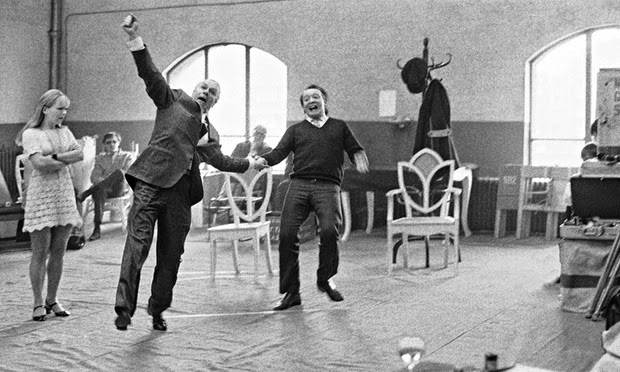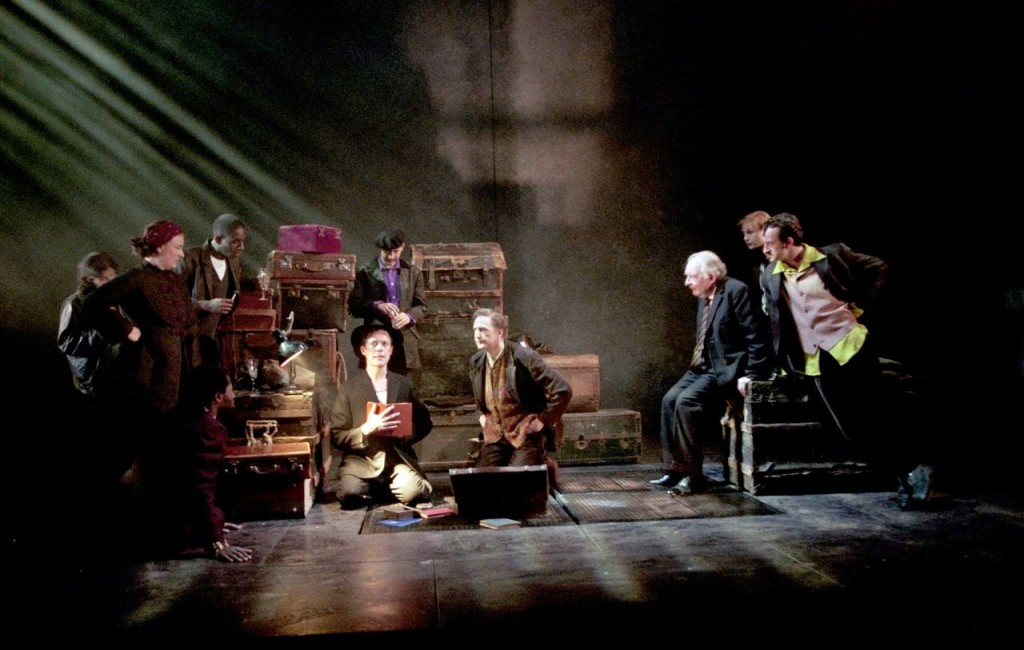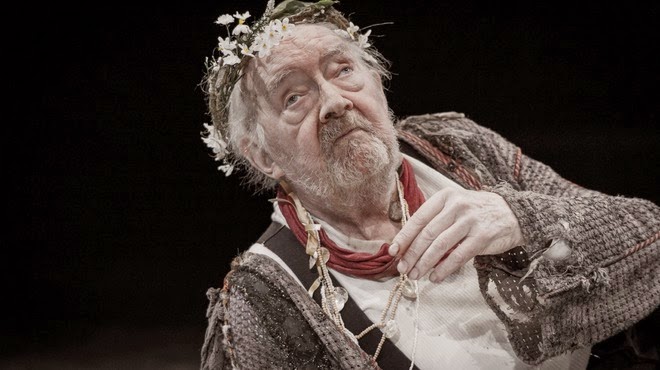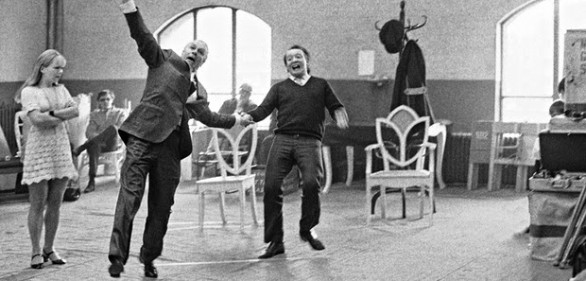DAVID RYALL, 1935-2014
after my visit to Bille Whitelaw at Denville Hall and found David Ryall’s name
too. David had played a small part in Trelawny
of the ‘Wells’, I recall.
They’ve built a fine new extension since I was last there in the 80s and the
rooms are spacious with en suite shower rooms and Billie particularly enjoys
her view of the garden. Amongst her pictures I noticed a series of photographic
studies of her thirty-eight-year-old son when he was about nine, a photograph
of ‘Sam’ of course, who is always photogenic, and old posters of Trelawny of the ‘Wells’ –‘You
must have contributed to them; the company gave them to me when I left’. Yes,
faintly I remember. When I left, after six years – it
was a Rosencrantz and Guildenstern
night I remember – there was no ceremony of any kind, except that some bunches
of violets were thrown at my feet from the gallery (I pressed and framed them
with their note and kept them for quite a few years – who threw them, I still
wonder). David Ryall, who’d understudied me for the three years plus I’d played
the part, came into the dressing room at the last minute and presented me with
half a bottle of whisky, the result of a quick whip-round.
as talking with the woman who had danced for Diaghilev and Fred Astaire [Wendy
Toye], I talked with the woman who had walked down the Boulevard with Samuel
Beckett; as we had stood amongst the throng round the table of cakes and
savouries, she had suddenly spoken to me the opening chunk of Not I in a hushed breathless
monotone whisper with ‘no acting’ as Sam had wanted it, but it had its own
special music.
longish letter David wrote to me ten years ago.
It was written on stage at Wyndham’s Theatre during a performance of Michael
Frayn’s Democracy when David had a long period as one of several
politicians, sitting upstage and working at a desk as I remember. He was very
convincing in the part, and no doubt on the night he wrote to me he seemed to
be addressing a constituent – which, in a way, he was.
He had joined Olivier’s National Theatre company just a year after me. He took over from Frank Wylie the role of Pedro de Candia in The Royal Hunt of the Sun and we appeared together in Strindberg’s Miss Julie as part of the Chichester season of 65. On the NT tour of Canada for Expo 67, where we performed Feydeau’s A Flea in her Ear, he begged me to accompany him by train – as he loathed flying – from Winnipeg, through the Rockies at dead of night (so we never saw them), to the West Coast. He remained grateful that we had shared that long, tedious journey.
 |
| Laurence Olivier with David Ryall in a 1966 rehearsal for A Flea in Her Ear. Photo by Chris Arthur |
We last appeared on stage together in 1998, on another North American tour, in Matthew Warchus’s production of Hamlet for the RSC when he played Polonius and I doubled the roles of the Ghost and Player King. I remember a particularly moving matinee in Brooklyn to a tough audience of local kids. David’s Polonius was shot, not stabbed, through the arras in our production. One would have thought the shootings every day in the streets of Brooklyn and every hour on US television might have desensitized our teenage audience. No. A single boy’s voice called out: ‘F**k – he shot him!’ and you could still have heard a pin drop.
 |
| Alex Jennings (fourth from left left) as Hamlet; EP (centre); David Ryall (third from right). Photo by Donald Cooper |
I heard too late, some months ago, that David had done a run of King Lear in a fringe production at the Cockpit Theatre, bravely reading much of the part as he had recently undergone chemotherapy and his memory was defective. Touchingly his younger daughter Charlie played Cordelia.
 |
| As Lear at the Cockpit in March 2014 |

2 thoughts on “DAVID RYALL, 1935-2014”